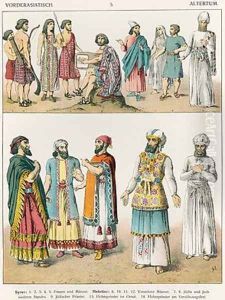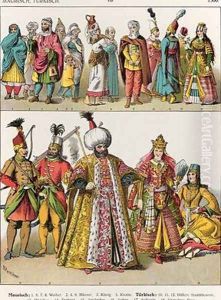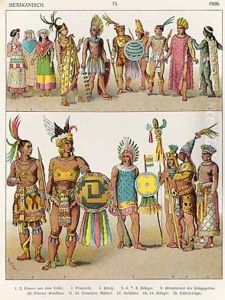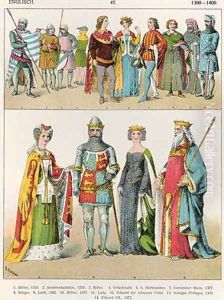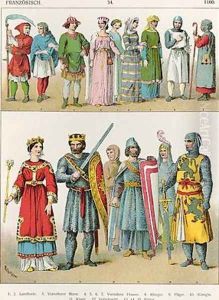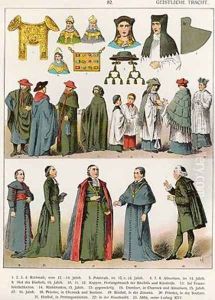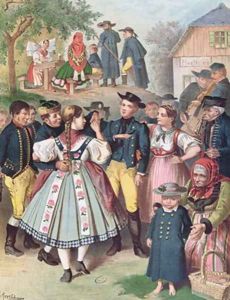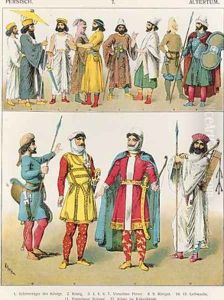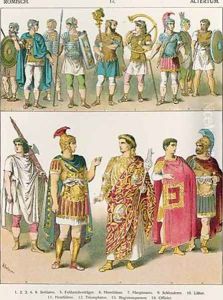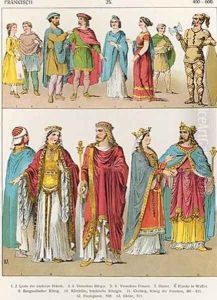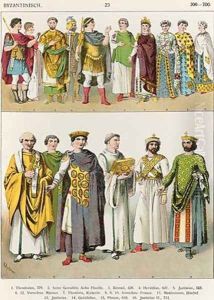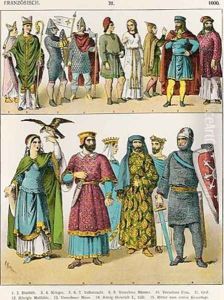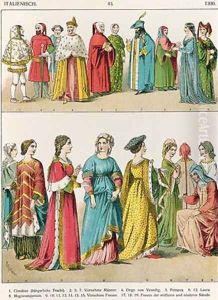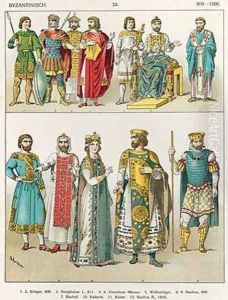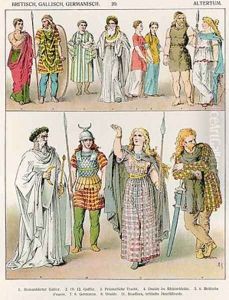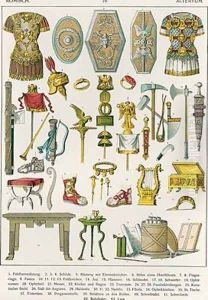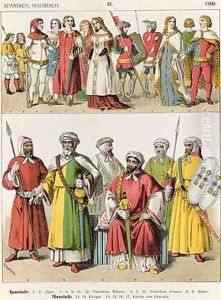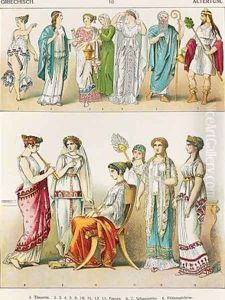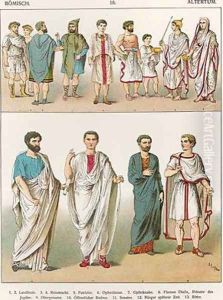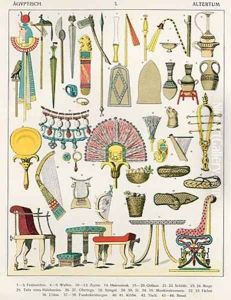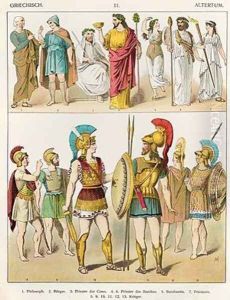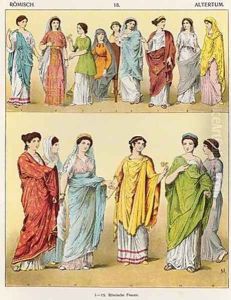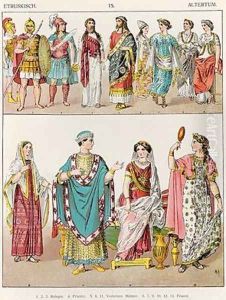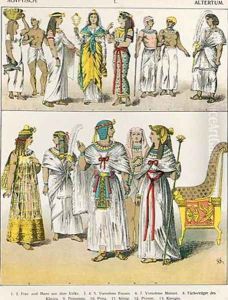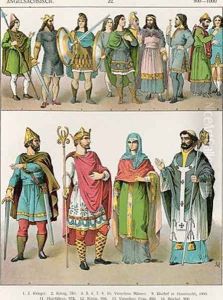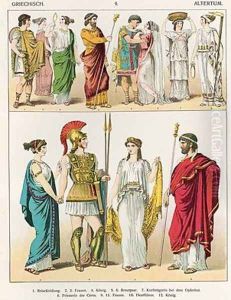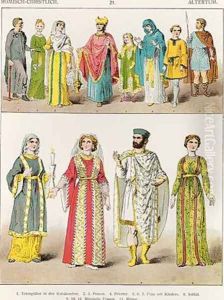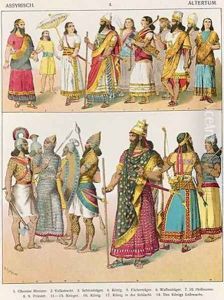Albert Kretschmer Paintings
Albert Kretschmer was a noted German painter and professor, renowned for his work as a costume designer. Born on May 25, 1825, in Glogau, Silesia (now Głogów, Poland), Kretschmer developed an interest in the arts at an early age. He pursued his passion for drawing and painting and made significant contributions to the field of theatrical costume design.
Kretschmer's talent was recognized early on, and he went on to study at the Academy of Arts in Berlin. His keen eye for historical accuracy and detail soon earned him a reputation as a skilled costume historian. He worked extensively in the theater, where he created costumes that were celebrated for their historical authenticity and artistic beauty.
Throughout his career, Kretschmer collaborated with various theaters across Germany, including the Royal Court Theatre in Berlin. His works were not only practical, serving the needs of the productions, but also scholarly, contributing to the study of historical dress. He published several influential books on costume history, such as 'Die Trachten der Völker vom Beginn der Geschichte bis zum 19. Jahrhundert' ('The Costumes of Nations from the Beginning of History to the 19th Century'), which remain valuable resources for researchers and enthusiasts of historical costume.
Kretschmer's dedication to the study of historical costumes also led him to become a professor, teaching the subject to a new generation of artists and designers. He was highly respected by his students and peers for his extensive knowledge and his ability to bring the past to life through his costume designs.
Albert Kretschmer continued to work and teach until his death on November 14, 1891. His legacy lives on through his published works and the costumes he created, which continue to influence the fields of theatrical design and costume history. Kretschmer's meticulous approach to the art of costume design has left an indelible mark on the cultural heritage of Germany and the world.
